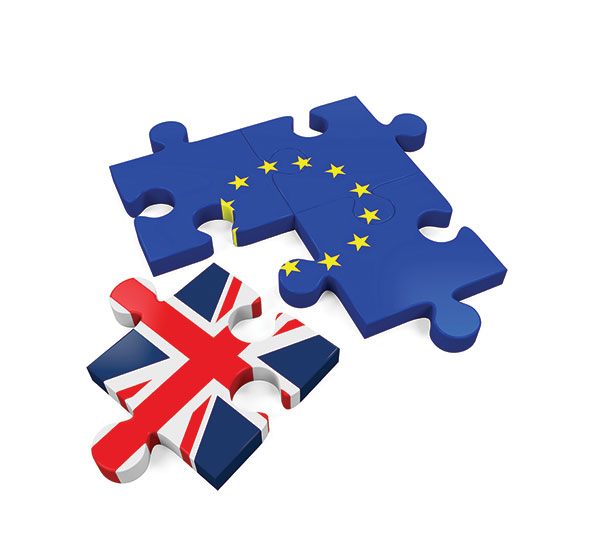Key events this week:
MPs will vote for a third time on the Withdrawal Agreement in parliament this afternoon. This will not, however, be a third meaningful vote, as MPs will only be voting on the Withdrawal Agreement, and not the Political Declaration. No 10 is hoping that some Labour MPs will back to the deal, but this remains unlikely as Labour said would never vote for “blindfold Brexit”, while around 30 Eurosceptic Tories and the 10 DUP MPs are also holding out against it. Theresa May is warning that failure to back the deal will result in a long extension that requires participation in European Elections or crashing out without a deal on 12 April. The move to split the deal is partly designed to meet Commons Speaker John Bercow’s recent ruling that the same motion cannot be presented twice.
Theresa May has announced that she will step down as Prime Minister if Conservative MPs support her withdrawal deal. May made the announced in a meeting with Conservative backbenchers on Wednesday evening, in a last-ditch attempt to win the support of Tory Brexiters and the DUP. The announcement resulted in hardliners, such as Boris Johnson and 15 other Eurosceptic “switchers, coming out in support of the deal within hours of May’s speech. However, May suffered a serious setback when the DUP leader Arlene Fosters made a statement on Wednesday evening, in which she said the DUP would continue to vote against the deal as it posed “an unacceptable threat to the integrity of the United Kingdom”.
The indicative votes which took place in the House of Commons on Wednesday evening resulted in all eight alternative plans being rejected. The most popular plan was a referendum on any withdrawal agreement, which won 268 votes in favour, with 295 against. The proposal for a customs union received the second largest number of yes votes, with 264 in favour and 272 against. However, no single plan received a majority. Other alternative plans which were voted on included Labour’s customs union plan, the Common Market 2.0 plan, a no deal Brexit and revoking article 50. The initiative, led by Conservative Oliver Letwin, is to vote on a narrower set of options on Monday if Mrs. May’s deal has not been approved by then.
Divisions in the Labour party were exposed following the indicative votes, as three members of Jeremy Corbyn’s shadow cabinet defied the whip to resist backing a second referendum. Labour MPs were whipped in favour of its own proposal, a customs union, and a second referendum. It also ‘encouraged support’ for the Common Market 2.0.
The Speaker of the House, John Bercow, warned on Wednesday that he did not expect the government “to meet the test of change” in regards to the proposed third vote on the Withdrawal Agreement. Bercow ruled last week that the same motion cannot be voted on twice in the same Parliamentary session. This means that the deal on offer would have to be “substantially” different from the last time it was defeated, which scuppered the government’s plans to have a third meaningful vote on the deal last week. He reiterated this ruling on Wednesday, and warned the government against any attempt to circumvent his ruling “by the back door”.
One million people took the streets in London on Saturday to march in favour of a people’s vote. Speakers at the rally included Labour’s deputy leader Tom Watson, Scotland’s First Minister Nicola Sturgeon, London Mayor Sadiq Khan and former Conservative turned Independent Group MP Anna Sourby. The turnout for the vote was on par with the biggest vote of the century, the Stop the War march in 2003 against the Iraq war.
President of the European Council, Donald Tusk, warned MEPs that they should remain open to a long Brexit extension or risk “betraying” pro-European votes. Tusk stated that the six million people who signed the petition to revoke Article 50 or the one million who marched in the People’s Vote march in London on Saturday, cannot be ignored.
At least a dozen Conservative MPs are considering running in the leadership race, including Boris Johnson, Michael Gove, Dominic Raab and Jeremy Hunt. The final decision between the MPs’ two favourite candidates will be taken by Conservative Party members.
Implications for Irish food & drink companies:
Unless the withdrawal agreement is passed by the end of this week, or MPs decide on an alternative plan, the UK is set to leave the EU on April 12 without a deal. Irish companies should continue to prepare for the possibility of a no deal Brexit. Bord Bia’s support programmes can be found here.
Looking ahead:
- MPs will vote on Withdrawal deal for a third time at 2:30 pm on Friday afternoon.
- A second round of indicative votes will take place on Monday if the Withdrawal deal is defeated for a third time on Friday.
- If MPs approve the withdrawal agreement, they will have met the requirements to push exit day back to May 22.
- The government will either have to pass part two of the deal, the political declaration on the UK future relationship with the EU or change the law so that itdoes not needd to ratify the treaty to allow Britain to leave the EU.




